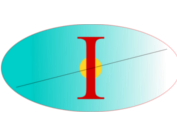Citation:
| neuhauser2015.pdf | 445 KB |
Abstract:
We develop a stochastic formulation of the optimally tuned range-separated hybrid density functional theory that enables significant reduction of the computational effort and scaling of the nonlocal exchange operator at the price of introducing a controllable statistical error. Our method is based on stochastic representations of the Coulomb convolution integral and of the generalized Kohn–Sham density matrix. The computational cost of the approach is similar to that of usual Kohn–Sham density functional theory, yet it provides a much more accurate description of the quasiparticle energies for the frontier orbitals. This is illustrated for a series of silicon nanocrystals up to sizes exceeding 3000 electrons. Comparison with the stochastic GW many-body perturbation technique indicates excellent agreement for the fundamental band gap energies, good agreement for the band edge quasiparticle excitations, and very low statistical errors in the total energy for large systems. The present approach has a major advantage over one-shot GW by providing a self-consistent Hamiltonian that is central for additional postprocessing, for example, in the stochastic Bethe–Salpeter approach.
Notes:
RBaer-Publication



